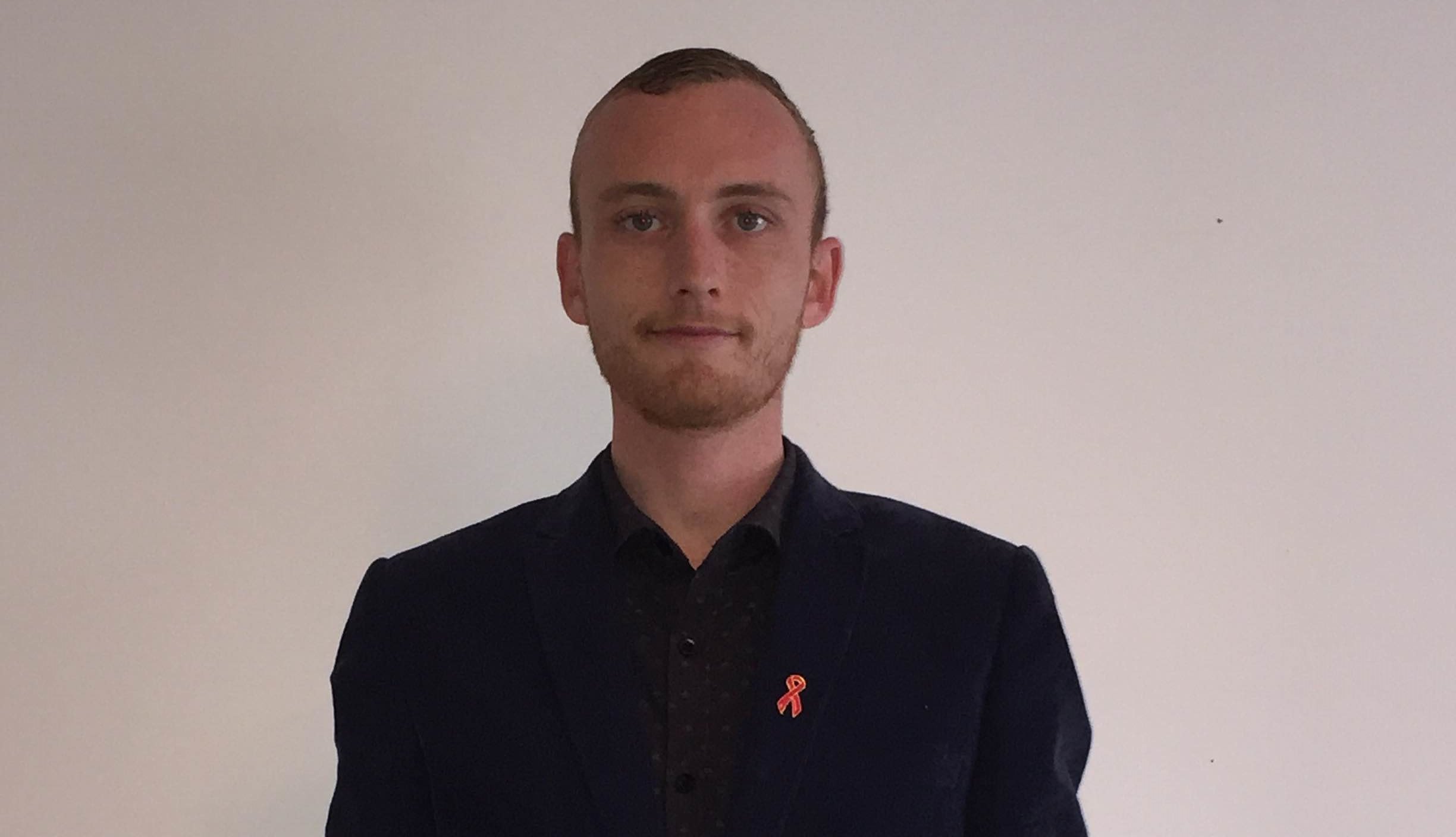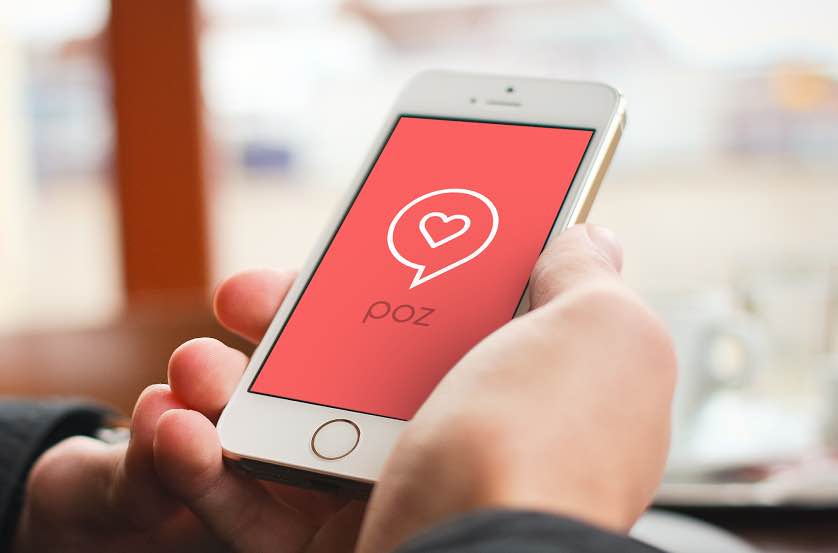Interview | Meet the man behind POZ, the dating app for people living with HIV

While the medical outlook for those living with HIV is better than ever before, it’s a sad fact that the stigma and prejudice surrounding those with the virus remains stuck years behind the science, meaning navigating the already tricky world of love and sex can often turn into an ordeal. After receiving one-too-many abusive messages on the popular dating apps of today, Andrew Goyvaerts decided to tackle the problem with the world’s first dating app for people living with HIV, both gay and straight.
The result was POZ, created when Andrew realised there were “so few places that we can meet someone to date without fear of stigma or even rejection upon disclosure of status.” We caught up with the app designer to find out more about the app, the stress and abuse people still face when it comes to disclosing their status, and why accusations that the app ‘segregates’ those living with HIV miss the point entirely…
So what is POZ and how did it come about?
It was only launched in March but it’s a concept I came up with about two years ago. There were a few things that I found with mainstream dating apps that complicated things: One was coming out of the ‘HIV closet’, which I think a lot of gay men battle with, and the second was rejection on those sites.
Obviously that’s a personal choice, but when somebody is saying they would rather not go out with you because of something like HIV, it’s quite different to being told they don’t want to go out with you because they’re not into you. It’s a very different feeling, and I felt there was a real need for this [app]. We are worldwide. We’ve had a lot of downloads in the UK, Australia and America, which seem to be our main areas, so that’s where we’re mainly focused on.
What was your personal experience of that rejection like? It must be very difficult to face it time and time again.
Well I actually ended up just putting [my status] on my profile, because it was just getting too much, but then what was happening was that I was actually getting quite a lot of abuse, even from people who came to me when I hadn’t contacted them. It’s not that people living with HIV face stigma every single day, but those sporadic incidents paint a bigger picture of non- acceptance.
I’ve had many people tell me over the last two and half years that there’s so much less stigma surrounding HIV these days, but those are often people who aren’t living with the condition. You still need to be careful about who you disclose your status to, and you can be faced with terrible abuse.
So is POZ solely directed at HIV positive people, or is it about providing a more accepting environment for anyone to operate in?
It is for people with HIV, but obviously we can’t stop anyone who doesn’t have HIV from joining. There are people out there who don’t have an issue dating a positive person, so we wouldn’t say no to that person, but what I would say is that if anyone who is negative joins up then they should really put that on their bio, so that other users are aware.
As with all things, that fear around HIV and to an extent the people living with it, comes down to ignorance. You must have experience of that first-hand?
I’ve had people ask ‘will I get it from kissing you?’ which shows you so much. I don’t necessarily blame people for having that heightened fear – those adverts about HIV and AIDs in the ‘80s have been followed up with very little since. People had this fear put into them which has never really been counteracted since. So I don’t blame society, but I do think these people could do with reading a book or going online. It’s certainly a lack of education. As a negative person I was afraid of contracting the virus, and people should be in a way, but there’s a fine line between being afraid of the virus and being afraid of the people living with it.

What kind of difference do you think POZ will make for HIV-positive people who are looking to forge relationships? It must make a huge difference psychologically to have that weight lifted.
Well that’s exactly the way I would describe it. One of the ways I like to put it is that it’s putting the ball back in the court of people living with HIV. That’s certainly something I used to feel using mainstream apps: that the ball wasn’t in my court, because even if the person is alright with your diagnosis, I always felt I was starting off owing that person something for accepting it.
The other thing is that we’re set to hit 110,000 people living with HIV in the UK this year, and not all of them are in cities and I do imagine this app will be good for people in rural areas who aren’t living in Manchester or London and don’t have a point of contact with the community.
We’re free to download now, and to search, send and receive messages. There will at some point be paid membership, which will be £7.99 a month, but that won’t affect searching or sending messages, because I am aware that this is going to be an important point of contact for people. Things that will be paid for will be added features.
The app’s been out for a few weeks now – what’s the reaction been like?
There have been some concerns that it might be kind of segregating in a way. I wouldn’t call it segregation. Over the last 30 years, for may reasons, there’s been stigma [around HIV] and I’d say it’s been a bit of a displaced community that hasn’t really been brought together, and hopefully this will do that.
The other thing I would say is that if people are having [unprotected sex], they’re not considering other things like hepatitis, gonorrhoea, chlamydia. Even if both parties have HIV they need to be having a conversation about who’s detectable, who’s undetectable. The best thing I can say to anyone who’s concerned about that we’re addressing it through the sexual health work on the site itself, and also through a social enterprise, Positive Moving On, which advocates good sexual health practice for people with HIV.
What would you say to someone who had concerns about ‘segregating’ people with HIV?
I think the best thing is for them to think of it less as segregation and more as community-building.
And I suppose there’s nothing to stop people using other apps – but POZ just means there’s a safe space for people if they need it.
Exactly. It’s completely up to them.
Poz is available to download now. For more information visit pozitiveconnections.io.
More stories:
Making history: Prince William appears on the cover of Attitude
Liam Gallagher slammed for homophobic tweet just days after Orlando shooting
